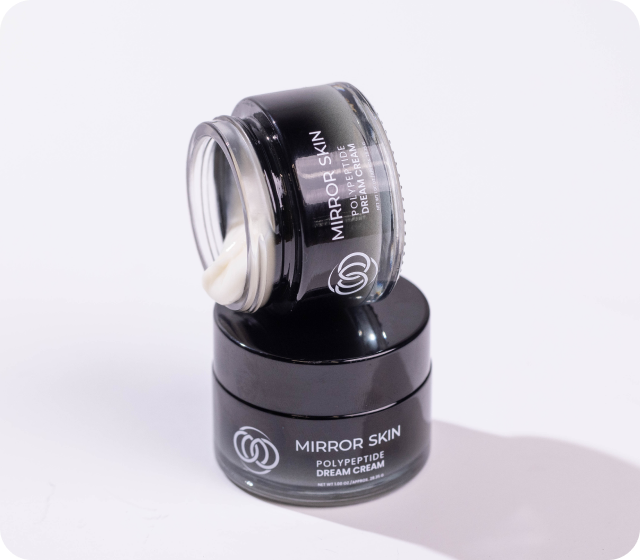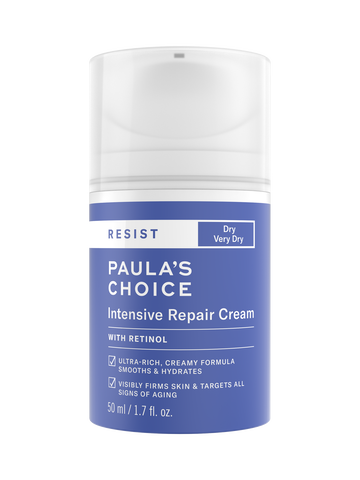How Many Times a Day Should You Moisturize Your Face?
Your Guide to Moisturizing the Right Way, Every Day
Because moisturizing is an essential step to support your protective barrier and keep your skin healthy, you should moisturize your face 1-2 times per day.
Moisturizing can provide much-needed hydration to parched skin, soothe irritation, and even fight signs of aging with ingredients like retinol.
Even with all of these benefits, the exact frequency at which you should moisturize your face depends on your skin type.
For example, someone with dry skin might benefit from moisturizing twice a day with a heavy cream, but someone with oily skin can get away with a light gel once a day.
In this article, I’ll teach you everything you need to know about moisturizing, how often you should moisturize, and even some secret moisturizing tips!
What is moisturizer?
Moisturizers are skincare products intended to help support your skin’s natural barrier.
Typically, they’re made up of some combination of:
Humectants
Emollients
And fatty acids
Many of these ingredients are naturally found in your skin, but certain skin types may produce more or less of them.
For example, people with oily skin overproduce sebum, the natural protective oil our skin makes.
Then, on the other hand, studies show that people with dry skin don’t produce as many natural moisturizing factors which can lead to dryness and flaking.
Both skin types can benefit from moisturizers, though the exact ingredients and best moisturizers will differ.
My Favorite Moisturizers Right Now
Mirror Skin Polypeptide Dream Cream: This one is amazing for anti-aging. It makes my skin so glowy the next morning when I wake up after applying it the night before, and it also helps with fine lines and dryness.
Naturium Marshmallow Root Barrier Balm: If your skin gets easily irritated, this is a great choice. It’s thick and super soothing, and it’s also a really good budget option.
Medik8 Advanced Ceramide Night Cream: I like using this when my skin feels dry. It’s super rich and helps my skin feel soft, smooth, and moisturized by the next morning.
Hanni Water Balm: This one isn’t really a regular moisturizer, but I love it for summer. You spray it on like water, and it still keeps your skin soft and healthy because of an ingredient called cottonseed oil that supports your naturally fat-based skin barrier.
Benefits of Moisturizers
Whether you’re dealing with normal skin or acne-prone skin, oily skin, or dry, moisturizing has tons of benefits.
Soothing Sensitive Skin
Sensitive skin types are often induced by external factors like:
Strong, caustic ingredients like tretinoin
Harsh winds and cold weather
And allergens
Thankfully, studies show that moisturizing helps fight skin sensitivity, and certain ingredients can even train your skin not to react to common allergens!
Protecting Your Skin Barrier
Your skin barrier is made up of components like ceramide, cholesterol, natural moisturizing factors, and more.
However, throughout our everyday life, your skin gets bumped, scraped, and quite frankly, abused by your external environment!
Even cold air or dry central heating can suck moisture out of your skin and compromise your skin’s protective barrier.
Thankfully, moisturizing helps add those natural components back into your skin, not unlike putting bricks back into a wall that’s been hit by a hammer!
Hydrating Your Skin
Moisturizers with humectants work almost like little magnets to bring water molecules into your skin.
For example, ingredients like hyaluronic acid and glycerin can help attract water which keeps your skin plump and happy.
Plus, studies show that keeping your skin hydrated can even help prevent premature wrinkles.
Treating Different Skin Concerns
Certain moisturizers are formulated with superstar skincare ingredients to play double (and sometimes triple) duty!
For example, moisturizers with retinol help fight fine lines and wrinkles by stimulating collagen and elastin production.
Try: Paula’s Choice RESIST Intensive Repair Cream: A rich, ultra-creamy moisturizer with 0.01% retinol that smooths texture, improves firmness, and deeply hydrates. Great for dry, aging, or sensitive skin looking for a gentle anti-aging boost.
On the other hand, moisturizers with vitamin C and niacinamide can help even out your skin tone and fight hyperpigmentation.
Try: Naturium Dew Glow Moisturizer SPF 50: A radiant, hydrating sunscreen with niacinamide, vitamin C, and hyaluronic acid. Gives broad-spectrum protection and a dewy finish without feeling heavy.
Picking the right moisturizer for you largely depends on your specific needs and which ingredients work best to treat them.
Helping With Acne Prone Skin
People with oily skin types produce more natural oils than people with dry skin.
While this natural oil, also known as sebum, can help moisturize your skin, it can also contribute to acne and blemishes.
People commonly use treatments like salicylic acid and benzoyl peroxide to treat acne, but these ingredients can be quite drying.
Then, when your skin is overly dried out, your body starts to overproduce sebum to protect itself which can cause even more acne problems down the line.
By moisturizing, you can prevent this vicious cycle from occurring and support your protective barrier.
Providing Sun Protection
Did you know that sunscreen is basically just moisturizer with UV filters in it?
Yup, it’s true!
Moisturizers with SPF can help fight dark spots and even prevent skin cancer.
Make sure to include them in your daily skincare routine.
Try: Zincscreen 100% Mineral Lotion: A thin, tinted, lightweight mineral sunscreen with SPF 40.
Different Types of Moisturizers
There are a few different types of moisturizers, and the right one for you typically depends on your skin type. For example:
Lotions are thinner, lighter moisturizers that work well with normal and combination skin types and both warm and winter climates
Creams are heavier, thicker moisturizers that are ideal for people with dry skin or those using tretinoin
Gels are lightweight, watery moisturizers that are perfect for oily skin types
Balms are extremely thick, heavy moisturizers that are great for dry winter skin
Plus, if moisturizers don’t work for you, you might benefit from lightweight serums or hydrating toners.
Popular Ingredients in Moisturizers
Moisturizers are unique combinations of fatty acids, humectants, emollients, and other ingredients.
Some common categories of ingredients you can find in moisturizers include:
Humectants like aloe vera and hyaluronic acid that help hydrate your skin
Ceramides that help replenish and moisturize your skin
Fatty acids like those found in shea butter help nourish your skin
Barrier-supporting ingredients like niacinamide can help regulate skin function
Brightening ingredients like vitamin C can help get rid of dark spots and uneven skin tone
Regardless of your specific needs, you can always find a good moisturizer if you look hard enough.
How to Pick a Moisturizer for Your Skin Type
Dry Skin
People with dry skin can benefit from thicker, heavier moisturizers like creams and balms as opposed to light moisturizers like gels.
These moisturizers not only provide skin-loving ingredients and nourishment to your skin barrier, but they often have heavy ingredients that help form a near-occlusive film on your face which helps trap in water.
Try: CeraVe Moisturizing Cream: A rich, non-greasy cream with ceramides and hyaluronic acid that provides 24-hour hydration. Helps restore the skin barrier and is gentle enough for sensitive, dry, or eczema-prone skin.
Oily and Combination Skin
Those with oily skin types are already prone to excess sebum production, so they don’t need heavier moisturizers.
In fact, in these cases, heavy moisturizers can cause acne breakouts, clogged pores, and Millia.
If that sounds like you, try sticking to lightweight gel moisturizers or lotions instead of heavy creams.
Try: Versed Dew Point Gel‑Cream Moisturizer: A lightweight, non-greasy gel-cream with sodium hyaluronate, aloe, and green tea. Hydrates oily or combination skin without clogging pores while calming redness and protecting against free radicals.
Acne Prone Skin
Moisturizers do not cause acne, and in fact, they can even help!
Picking out a moisturizer with great acne-fighting ingredients like salicylic acid and mandelic acid can be ideal for those with pesky breakouts and blackheads.
How many times should you moisturize your face a day?
Depending on your skin type, you should moisturize your face one to two times per day.
If you have dry skin or are dealing with harsh winter weather, consider switching to a thicker cream or balm moisturizer and applying it twice per day.
If you have oily or acne-prone skin, try out a gel moisturizer or a moisturizer with acne fighting ingredients are apply it once or twice a day.
Moisturizing Tips to Keep Your Skin Hydrated
Here are 5 of the best tips to keep your skin hydrated and moisturized:
Understand skin type: different skin types have varying hydration and moisturizing needs. Determine whether you have oily, dry, or combination skin first before picking out your moisturizer and deciding how often to use it.
Customize your routine based on your environment: be sure to adjust your skincare routine according to your location. During dry or cold seasons, you may need to apply moisturizer more frequently to soothe dryness.
Apply your moisturizer on damp skin: studies show that your skin is able to absorb products more easily when it’s damp, so try moisturizing right after your shower or washing your face.
Try out a richer moisturizer at night: since your skin regenerates when you sleep, it’s the perfect time to apply a heavier, richer formula to support this process. Creams and balms are ideal to include in your nighttime skincare routine.
Listen to your skin: if you have specific skin concerns like acne or signs of aging, be sure to choose a moisturizer with active ingredients like retinol or salicylic acid that can help
Dealing with acne? Check out the best moisturizers to use with benzoyl peroxide!
The Bottom Line: How often should you moisturize?
Depending on your skin type and the climate you live in, you should moisturize once or twice per day.
If you’re prone to dry patches or flaking skin, try sticking to richer moisturizers with nourishing ingredients like ceramides to support your natural moisture barrier.
If you have oily or acne-prone skin, consider switching to a lightweight gel moisturizer or a mandelic acid product to control oil and breakouts.
Don’t forget that you’re never locked into just one product, you can always try a couple out to see what works best for you and fits into your skincare routine!
Cheers,












